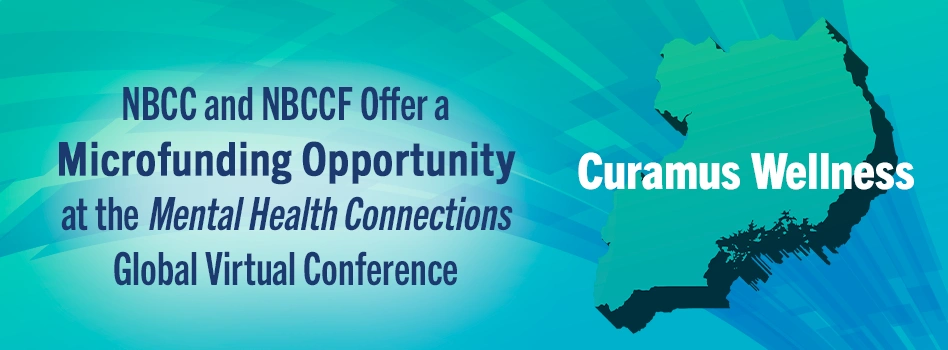
NBCC and the NBCC Foundation (NBCCF) are proud to present the fifth Mental Health Connections global virtual conference Dec. 4–6, 2024. This year’s conference theme is Fostering Community, Propelling Peace.
Mental Health Connections brings together presenters and attendees from around the world to share experiences of counseling practice and professionalization.
Conference fees help support the Mental Health Facilitator (MHF) program, which promotes awareness and combats stigma globally through foundational mental health knowledge and skills, using community-based education and local resources. The MHF program increases awareness of, and access to, mental health care.
The conference presents a microfunding opportunity, in which attendees can donate toward building this capacity for a specific program partner.
“The microfunding recipient tells us what they are doing and how they are involved with the MHF program during the conference opening session and on the conference website, and people then have the opportunity to donate to them,” says Eugenie Yang, NBCC's Global Capacity Building (GCB) Manager. “Any amount helps. In more developing areas, a couple of thousand dollars can support a full MHF training for 20 people. That’s how far the reach can be for our partners.”
The 2023 microfunding recipient was the Global Livingston Institute (GLI), a nonprofit research institute dedicated to developing strategic partnerships in East Africa and the United States with a focus on education and social impact aimed at stimulating innovation, empowerment, collaboration, conversations, and personal growth.
With generous donations from conference attendees, which were matched by NBCC, GLI will utilize the funds to develop a mental health referral platform that connects individuals with mental health services providers through trained MHFs. This project will take place among rural populations, particularly in southwestern and northern Uganda.
The referral platform is the result of an evaluation conducted among 2023 MHF trainees and facilitators on the impact of the MHF Uganda program. The evaluation overwhelmingly revealed that trainees and facilitators in Uganda are eager to assist their communities and, if possible, link them with local professional health services. The trainees maintain that this would help bridge the gap between people struggling with mental health concerns and professional health care from trained providers.
Curamus was established in February 2023 as a response to the Mental Health Law of the Philippines and the Department of Labor and Employment (DOLE) Order Number 208 to provide mental health programs in communities and workplaces.
Curamus is Latin for “we care” and is an organization that envisions the world’s citizens reaching their full potential in mental wellness. Their mission is to create a collaborative platform for sustainable mental wellness accessible to individuals, communities, and workplaces. Curamus wants to increase the mental health knowledge of Filipinos by providing capacity in practical knowledge and developing skills to promote mental wellness in the country.
In February 2024, the first MHF training was formally organized by Curamus with 17 graduating psychology students from Lyceum of the Philippines University. In June of 2024, Curamus conducted an MHF trainers training program with nine individuals, including a pastor, psychologists, guidance teachers, and life coaches who were motivated to train communities and workplaces in collaboration with DMR Psychological Services.
Also in June, Curamus facilitated an MHF training with 11 campus ministers of the Roman Catholic Archdiocese of Manila (RCAM). These campus ministers are assigned to help and support the spiritual and holistic needs of the students from different non-sectarian universities and colleges in Manila.
In the future, Curamus plans to collaborate with public schools to train teachers and student volunteers where high mental health concerns are observed but not given priority or proper intervention. Curamus is committed to training mental health advocates who will be catalysts for positive change and strengthening collaboration among mental health professionals in the Philippines.
“While people may seem worlds away from each other in distance, we often face similar issues. It’s helpful to normalize the idea that we aren’t facing these issues alone. We can help each other, and our microfunding opportunity is one of these ways,” concludes Yang.